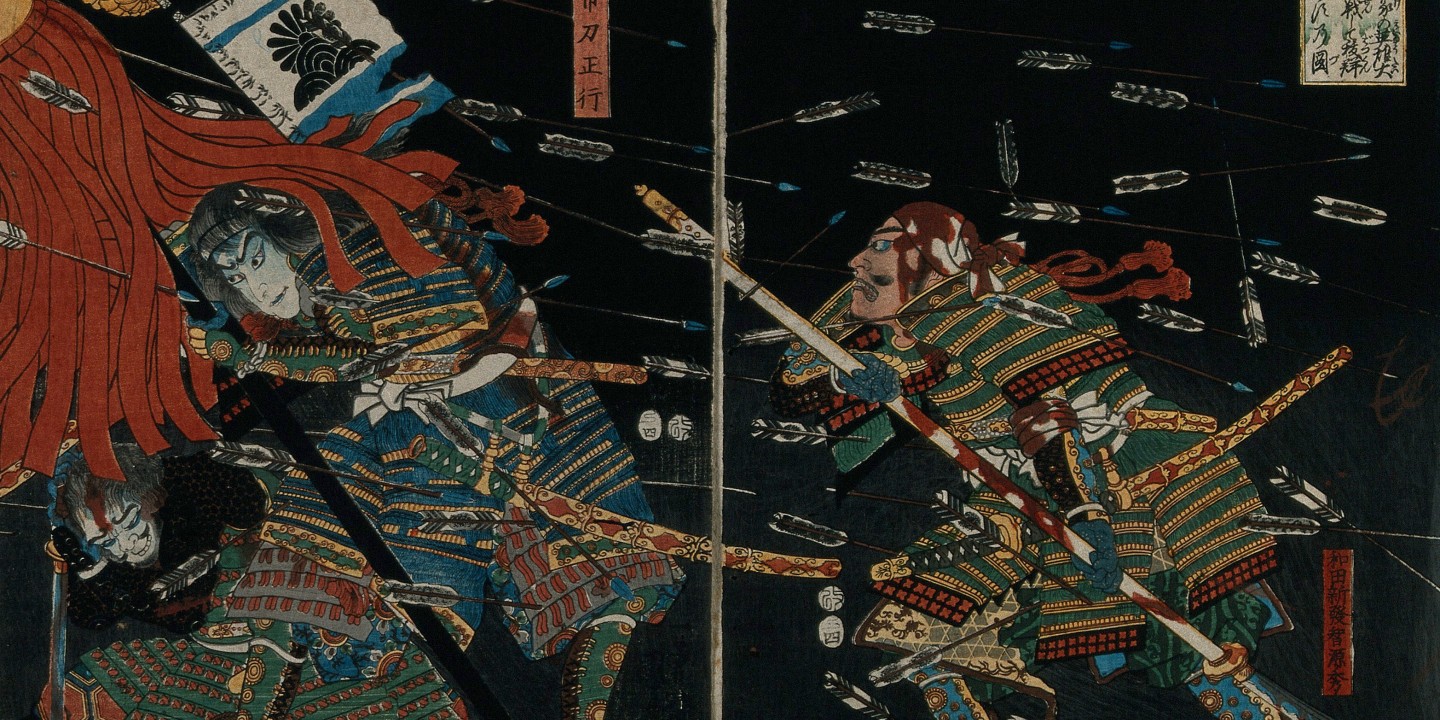Reading a Samurai code alongside Howard Thurman’s meditations on nonviolence
Tsunetomo and Thurman both say death is not to be feared for those who understand their purpose in life.

When you read wildly and wantonly, you often encounter peculiar resonances and conjunctions. Recently I was reading two books simultaneously, from totally different cultural contexts, with totally different purposes.
On the one hand, I was delving into Tsunetomo’s In the Shadow of the Leaves. It’s an 18th century Japanese text laying out the Bushido ethos, the “Code of the Samurai.” It’s, well, it’s a complicated book. In many places, it’s remarkably graceful. Wise, elegantly poetic, and thought-provoking. It sings of detachment from the world, of stoicism and simplicity, of the moral rot of grasping, selfishness, and greed, and of compassion as the highest virtue. I’ve collected what I saw as the best of it here.
And at the same time, it’s a book that celebrates both fanaticism and death. Death, which is both inescapable and to be embraced. Fanaticism, which is the complete unquestioning obedience to one’s Master, to the point where death itself doesn’t matter. If your Master says, Hey, go disembowel yourself with a sharp pointy object, you do, and you do so as a point of pride. It tells story after story of brutal death and horror, all with a strange abstracted joy. It’s full of death, full of quotes like this:
Death is the only sincerity. It is said that becoming as a dead man in one’s daily living is the following of the path of sincerity.
A strange bit of literature, the kind of book that you’d read for inspiration before climbing into your Cherry Blossom and flying it into the side of an American transport ship.
While being both fascinated and weirded out by Tsunetomo, I was also continuing in my reading of Howard Thurman’s Meditations of the Heart for my Sunday School class. On the surface of it, this is a completely different book, from an entirely different culture, with an utterly different purpose. Thurman’s gracious mystic ruminations provided the spiritual foundation to his radical embrace of nonviolence, an embrace that both informed and transformed the civil rights movement in 20th century America.
The terrible brightness of Tsunetomo’s warrior ethic seems the farthest thing from Thurman’s radical commitment to peace and nonviolence. What I discovered, in reading the two of them simultaneously, is that there were peculiar harmonies I did not anticipate. The emphasis on calmness of soul. The seeking of stillness, of dreams, of the value of poetry, of the natural world. And oddly, paradoxically in their attitude towards death.
“Take no thought for your life,” says Thurman, sounding for all the world like Shimeda preparing his little band to defend the village.
Both Tsunetomo and Thurman tell us that death is inescapable, and therefore not to be feared. That death is meaningless to the unanxious person who understands their purpose in life, and who has lived every moment towards that purpose. As Thurman puts it:
Finally, the glorious thing about man’s encounter with death is the fact that what a man discovers about the meaning of life as he lives it need not undergo any change as he meets death. It is a final tribute to the character of an individual’s living if he can die “unshriven” but full-blown as he has lived. Such a man goes down to his grave with a SHOUT.
It’s a peculiar harmony, one that makes a certain sense given Thurman’s context. The nonviolent ethos of the civil rights movement required a warrior’s courage, focus, and detachment. Facing dogs and hoses and bullets and bombs cannot be done without an immense fierceness of conviction.
Of course, there are nontrivial distinctions. Thurman’s daimyo being Jesus and all.
Because war and the path of war is understood. It is a form of power that has always defined human social struggle.
The absolute refusal to use violence or coercion against another as an implement in mortal conflict is strange and terrifying. More than a little terrifying. As living creatures, we fear both pain and death, because of course we do. We recoil at an ethos that tells us not to preserve ourselves, not to strike back, to stand instead with equanimity in the face of opposition and suffering. To love our enemies, even to the point where we express that love as we are dying.
Tsunetomo often describes his teachings as the Way, which again, resonates interestingly. Because that, as we recall, was one of the first terms used to describe the path of Jesus in the Bible.
If truth be told, the Way of Thurman—and of Jesus—seems harder.
Originally posted at Beloved Spear




